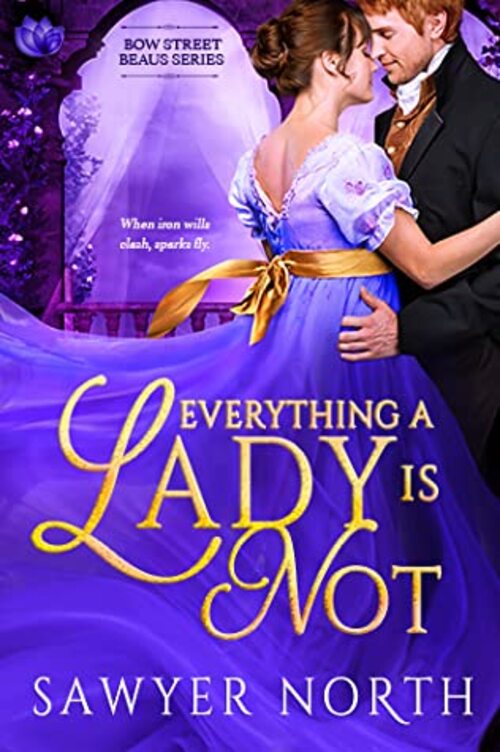I write historical romance classified as “sweet” but not religious. I don’t particularly care for the term “sweet” because of the baggage that’s been assigned to it. The term has been used simultaneously to put down “sweet” romance as yawn-inducing and to lay church lady judgment on sensual romances. That said, it is a better term than “clean” – don’t get me started there. So, for the purposes of this article, let’s stick with “sweet.”
As a man writing in a space dominated by women readers and writers, I made a conscious decision to avoid writing explicit sex scenes. Don’t misunderstand me – I read plenty of spicy romance; Tessa Dare is one of my favorites. It is just my opinion, though, that for a man writing sex scenes primarily for women readers there are a thousand ways to die. I took the cowards way out. I’m not proud of it. That brings me to my question, though: does sweet romance still matter?
In the beginning of the genre (or at least during the early 19th century), most romance fell into the sweet category. Spicy works were forbidden pleasures read mostly in secret, a behavior-driven largely by the prevalent religious view that sexual intimacy was somehow shameful, even between married people. When historical romance surged in the early 20th century thanks to writers such as Barbara Cartland and Georgette Heyer, it remained firmly entrenched in the sweet category. Those were still the days when a sexual encounter could “ruin” a woman, could ostracize her from society. (Not so for men, but that’s another injustice.) However, the sexual revolution of the 1960s moved the western world into new territory. Sex was no longer seen as shameful, and women were at least partially liberated from the sexual double standard. What followed were historical romances that became more sensual, more descriptive, more explicit. This trend has continued for decades until the vast majority of romance novels contain a level of sensuality that would scorch Georgette Heyer’s eyebrows. A large sliver of what remains contains overtly religious themes aimed at particular audiences. The space between those lines seems very narrow these days.
So, does sweet romance still matter? Is it going the way of the dodo bird and the rotary telephone? Or will it doggedly cling to that narrow space as time goes by? I wish I knew the answers to all these questions, because I spend far too many hours producing “sweet” novels to pay no attention to the questions. Some say they write for the pure joy of writing. I think all writers do, to some extent. However, what is a novel if it has no audience? What is a story if no one hears it? What is a book if no one holds it in her hands?
For now, I’m counting on at least the preservation of that narrow space – that a love story without explicit sex can still count as romance. If I’m wrong, then perhaps I’ll evolve by growing a backbone. I don’t miss rotary telephones, so there’s hope for me either way.
EVERYTHING A LADY IS NOT by Sawyer North
Bow Street Beaus #1
Lucy Locket, the long lost granddaughter of a duchess, has never been a part of Society. One day, she was living a secluded life as the prisoner of a criminal, and the next day she was an heiress in a world she did not even remotely understand. She does not embody the typical qualities of a well-born lady. . . at all. She can’t curtsy, she doesn’t hide her emotions, she’s too clever by far. But in three months, she must marry a suitor with a royally-bestowed title, or she forfeits a fortune–leaving her and the duchess in dire straits.
All Henry Beaumont wants is to prove himself to Society and step outside of his half-brother’s shadow. So when the duchess asks him for a personal favor involving her newly found granddaughter–with a hefty thank you reward at the end–he leaps at the opportunity.
It seems as if Lucy is trading one prison for another. Henry has now become a permanent fixture as her charming yet iron-fisted taskmaster and tutor in the ways of High Society. Like oil and water, Lucy and Henry spar in an epic battle of wills–and even rapiers. But Lucy’s past and her surprising, undeniable feelings for Henry may doom their undertaking if he declares his love for her. . . because without a title, he can never be hers.
Romance Historical [Entangled: Scandalous, On Sale: August 17, 2020, e-Book, ISBN: 9781649370204 / eISBN: 9781649370204]
Buy EVERYTHING A LADY IS NOT: Kindle
| BN.com | Apple Books | Kobo | Google Play | Amazon CA | Amazon UK | Amazon DE | Amazon FR
About Sawyer North
After self-publishing science fiction novels over a period of years, I made the truly odd move into historical romance. Although romance is a strong thread in nearly all my works, I came to straight-up, nothing-but-romance only after turning fifty. Since then, I am plagued by the question, “What took me so long?” My awakening began rather innocuously when I casually watched the 2015 version of Poldark. Before I knew, I was falling headlong into the abyss of historical romance and read fifteen such novels over a three-month span. However, no number could sufficiently scratch my itch for more, so I did what any writer would do and began constructing stories of my own. In April of 2019, I received my first contract with Entangled Publishing.




No Comments
Comments are closed.